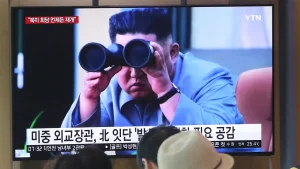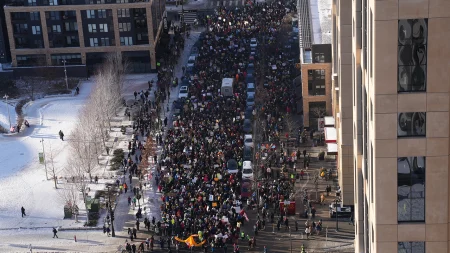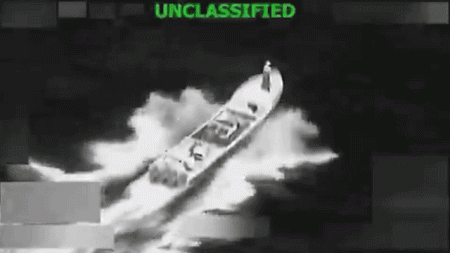As Global Recognition of Palestinian Statehood Grows, Tangible Support Remains Elusive
International Support for Palestine Increases Amid Ongoing Conflict
The global diplomatic landscape is shifting dramatically regarding the Israeli-Palestinian conflict, with a notable surge in nations formally recognizing Palestinian statehood. This evolving geopolitical stance comes against the backdrop of Israel’s military operations in Gaza, which have intensified international scrutiny and sparked unprecedented levels of criticism. However, despite mounting verbal condemnations and symbolic diplomatic gestures, the practical impact of these developments remains questionable. The gap between rhetorical support and meaningful action highlights the complex realities of Middle Eastern politics and the limitations of international influence in the region’s most intractable conflict.
Recent months have witnessed Spain, Ireland, Norway, and Slovenia joining approximately 140 countries worldwide in formally recognizing Palestine as a sovereign state. These European nations’ recognition represents a significant diplomatic shift, as Western powers have historically been more hesitant to extend such recognition without a negotiated Israeli-Palestinian agreement. “This recognition is not against Israel but for peace,” declared Spanish Prime Minister Pedro Sánchez in a statement that encapsulated the delicate balancing act many nations are attempting. These countries have framed their decisions as necessary steps toward revitalizing the moribund peace process and preserving the viability of a two-state solution, which many experts warn is rapidly disappearing due to continued settlement expansion in the West Bank and the devastating humanitarian crisis in Gaza.
Critical Voices Rise as Military Operations Continue
Diplomatic recognition comes amid growing international criticism of Israel’s military campaign in Gaza, which was launched following Hamas’ October 7, 2023 attack that killed approximately 1,200 Israelis and saw around 250 taken hostage. The subsequent Israeli military response has resulted in over 35,000 Palestinian casualties, according to Gaza health authorities, and created a humanitarian catastrophe that UN officials have described as “unprecedented.” Even Israel’s closest allies have voiced concerns about the scale of civilian suffering, with U.S. President Joe Biden describing the operations as “over the top” and warning about eroding international support. European leaders have similarly escalated their rhetoric, with French President Emmanuel Macron calling for an arms embargo and German Chancellor Olaf Scholz expressing “deep concern” about the humanitarian situation – unusually strong language from leaders of countries that have traditionally been steadfast Israeli allies.
The International Court of Justice’s preliminary ruling suggesting Israel’s operations could plausibly fall under the Genocide Convention has further intensified pressure, as has the International Criminal Court prosecutor’s application for arrest warrants against Israeli Prime Minister Benjamin Netanyahu and Defense Minister Yoav Gallant. These legal developments have contributed to a sense that Israel is facing unprecedented international isolation. South Africa’s genocide case against Israel at the ICJ has galvanized global attention, with numerous countries including Brazil, Mexico, and Turkey expressing support for the proceedings. “What we are witnessing is a fundamental shift in how Israel’s actions are being perceived and judged by the international community,” explained Dr. Sarah Jameel, professor of international relations at Columbia University. “The legal, diplomatic, and public opinion landscapes are all changing simultaneously.”
The Reality Gap: Words Versus Actions
Despite the flurry of diplomatic activity and heightened rhetoric, concrete actions to pressure Israel or materially support Palestinians remain limited. While European recognition of Palestinian statehood represents a symbolic diplomatic victory for Palestinians, it has not translated into tangible changes on the ground. Most countries recognizing Palestine have not implemented significant sanctions against Israel or substantially increased humanitarian aid to Gaza. The United States, Israel’s most crucial ally, continues to provide approximately $3.8 billion in annual military assistance, despite occasional delays in weapons shipments and public criticism from the Biden administration. Recent Congressional approval of additional military aid underscores the enduring nature of this support, regardless of diplomatic tensions.
Military aid from Western nations continues to flow into Israel, with Germany, the UK, and France maintaining their defense cooperation agreements despite their leaders’ critical statements. Trade relationships also remain largely intact, with few countries willing to risk economic consequences by imposing meaningful sanctions. “There’s an enormous gap between what countries say about the conflict and what they’re willing to do about it,” noted Ambassador Richard Haass, former president of the Council on Foreign Relations. “Recognition of Palestinian statehood is relatively cost-free politically, but imposing sanctions or cutting military ties with Israel would involve real strategic and economic tradeoffs that most governments aren’t prepared to make.” This disconnect between rhetoric and action reflects the complex geopolitical calculations governments must navigate, balancing human rights concerns against strategic partnerships, domestic political considerations, and economic interests.
Palestinians Face Deteriorating Conditions Despite Diplomatic Gains
For Palestinians, particularly those in Gaza, diplomatic victories offer little immediate relief from the devastating humanitarian crisis. The United Nations reports that over 85% of Gaza’s 2.3 million residents have been displaced, with critical shortages of food, medicine, clean water, and shelter creating conditions that humanitarian organizations describe as catastrophic. Despite international pledges of aid, delivery remains severely constrained by security concerns, damaged infrastructure, and bureaucratic obstacles. The West Bank has also seen escalating tensions, with increased settler violence and Israeli military raids occurring alongside the Gaza conflict. The Palestinian Authority, which would theoretically govern any recognized Palestinian state, remains weak, divided, and faces a crisis of legitimacy among many Palestinians who view it as ineffective at advancing their national aspirations or improving daily living conditions.
Palestinian civil society leaders express mixed feelings about the recent wave of recognition. “Of course we welcome recognition of our statehood as our legitimate right,” said Hanan Ashrawi, veteran Palestinian diplomat and activist. “But recognition without mechanisms to end occupation, stop settlement expansion, and address the humanitarian catastrophe in Gaza risks becoming an empty gesture.” This sentiment reflects a growing skepticism among Palestinians about the international community’s willingness to move beyond statements to meaningful action. As humanitarian conditions worsen and political horizons narrow, the diplomatic achievements at the international level appear increasingly disconnected from the lived reality of Palestinians in the occupied territories.
The Path Forward: Challenges and Possibilities
The current moment presents both unprecedented challenges and potential opportunities for addressing the Israeli-Palestinian conflict. While increased international recognition of Palestine and criticism of Israel’s military operations may not have immediate practical effects, they could gradually shift the diplomatic context for future negotiations. The growing isolation Israel faces diplomatically might eventually create domestic political pressure for a change in approach. However, Israeli society has moved significantly rightward in recent years, with polls showing limited support for Palestinian statehood and strong backing for the military campaign in Gaza, making near-term policy changes unlikely regardless of international pressure.
For meaningful progress to occur, several key developments would be necessary: a sustainable ceasefire in Gaza, the release of remaining hostages, massive humanitarian assistance and reconstruction aid, revitalization of Palestinian governance, and renewed commitment to diplomatic negotiations with international guarantees. The role of regional powers, particularly Arab states that had been normalizing relations with Israel before the current conflict, will be crucial in any future diplomatic process. “We’re at an inflection point,” observed Daniel Kurtzer, former U.S. ambassador to Israel and Egypt. “Either the international community will translate its rhetoric into meaningful action to preserve the possibility of two states, or we’ll see this conflict enter an even darker phase with consequences extending far beyond the region.” As more countries formally recognize Palestinian statehood, the coming months will reveal whether this diplomatic trend represents a genuine turning point or merely another chapter in a long history of international engagement that has failed to deliver lasting peace to Israelis and Palestinians alike.










